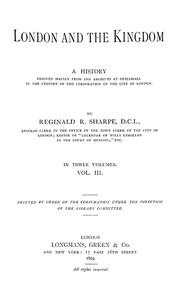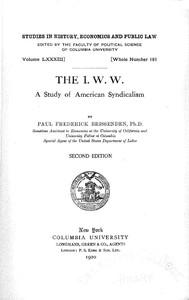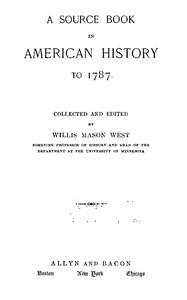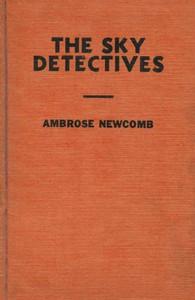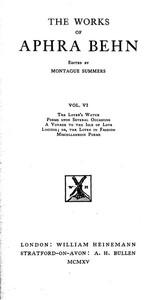|
|
Read this ebook for free! No credit card needed, absolutely nothing to pay.Words: 210284 in 97 pages
This is an ebook sharing website. You can read the uploaded ebooks for free here. No credit cards needed, nothing to pay. If you want to own a digital copy of the ebook, or want to read offline with your favorite ebook-reader, then you can choose to buy and download the ebook.

: London and the Kingdom - Volume 3 A History Derived Mainly from the Archives at Guildhall in the Custody of the Corporation of the City of London. by Sharpe Reginald R Reginald Robinson - London (England) History@FreeBooksWed 07 Jun, 2023 Official Calendar--September 1, 1908 333 Mayors of Fredericksburg in Their Chronological Order 336 HISTORY OF THE City of Fredericksburg, Virginia, FROM ITS Settlement to the Present Time In what year the white man first set his foot upon the present site of Fredericksburg is not certainly known. The mind of man, of the present generation, does not run back to that time, and if the first white visitor to the place thought it of sufficient importance to make a note of it that note was not preserved; or, if it was, it is unknown to the present inhabitants of the town, unless that visitor was Captain John Smith. It is stated that after John Smith was captured by the Indians, while on his trip exploring the Chickahominy, his captors marched him through the country, amid great rejoicing, visiting the Indian towns on the Pamunkey, Mattapony, Piankitank, Rappahannock and Potomac rivers, but it is not stated that he was taken as high up the Rappahannock as the falls. This trip through the country, however, while it was attended with hideous yells, cheers and all sorts of mournful noises by the excited throng, gave John Smith some idea of the rich and fertile valleys, the beautiful rivers that flowed from the mountains, and a desire to explore them if he should be fortunate enough to get back to the English settlement alive. For soon after his release, in writing of the discoveries, having already explored the Chesapeake bay, he says: "There is but one entrance by sea into this country, and that is at the mouth of a very goodly bay, the wideness whereof is near eighteen or twenty miles. The cape on the south is called Cape Henry, in honor of our most noble Prince. The show of the land there is a white hilly sand like unto the Downes, and along the shores great plenty of pines and firs. The north cape is called Cape Charles, in honor of the worthy Duke of York. "Within is a country that may have the prerogative over the most pleasant places of Europe, Asia, Africa or America and for large and pleasant navigable rivers, heaven and earth never agreed better to frame a place for man's habitation, being of our constitutions, were it fully manured and inhabited by industrious people. Here are mountains, hills, plains, valleys, rivers and brooks, all running most pleasantly to a fair bay, compassed, but for the mouth, with fruitful and delightsome land. In the bay and rivers are many isles, both great and small, some woody, some plain, most of them low and not inhabited. This bay lies north and south, in which the water flows near two hundred miles and has a channel for one hundred and forty miles of depth betwixt seven and fifteen fathoms, holding in breadth, for the most part, ten or fifteen miles. From the head of the bay at the north, the land is mountainous, and so in a manner from thence by a southwest line. So that the more southward, the further off from the bay are those mountains, from which fall certain brooks, which after come to five principal navigable rivers. These run from the northwest into the southeast, and so into the west side of the bay, where the fall of every river is within twenty or fifteen miles one of another." Early in the year of 1608, his life having been saved by Pocahontas, John Smith made a number of trips, exploring the rivers of this section of Virginia, entered the mouth of the Rappahannock and, but for an accident that befell him, might have continued his trip to the falls. They found fish in abundance in all the streams and, "near the mouth of the Rappahannock, Smith plunged his sword into a singular fish like a 'thornback,' with a long tail and from it a poisoned sting. In taking it off it drove the sting into his wrist, producing a torturing pain, and in a few hours the whole hand, arm and shoulder had swollen so fearfully that death seemed inevitable. He pointed out a place for his grave, and his men, with heavy hearts, prepared it. But Dr. Russell applied the probe and used an oil with such success that Smith was soon well and ate a part of the same fish for supper." Some writers contend that it was while on this trip that Smith came up the Rappahannock to the falls and had a battle with the Indians, but this is a mistake. This trip was commenced on the 20th of June, 1608, and it was directly after entering the mouth of the river that he saw so many fish in the clear stream and caught one on the point of his sword; for Russell, the physician, who accompanied him, says after Smith was thought to have been fatally poisoned, "having neither surgeon or surgery, but that preservative oil, we presently set sail for Jamestown. Passing the mouth of the Piankatank and Pamunkey rivers, the next day we safely arrived at Kecaughtan." If Smith had been very far up the Rappahannock he could not have passed the mouth of these two rivers the next day. The voyage that Smith made, during which he explored the Rappahannock river to the falls, was commenced on the 24th of July, more than a month after he entered the mouth of the river and was stung by the fish which turned him back. As this trip up the river is of great interest, being the first made by white men, it is here given in full as narrated by Anthony Bagnall, Powell and Todkill, Smith's companions, who wrote it down at the time. They say: "In the discovery of this river, that some called Rappahannock, we were kindly entertained by the people of Moraughtacund. Here we encountered our old friend Mosco, a lusty savage of Wighconisco, upon the river Patawomeck . We supposed him some Frenchman's son because he had a thick, black, bushy, beard, and the savages seldom have any at all, of which he was not a little proud to see so many of his countrymen. Wood and water he would fetch us, guide us any whether; nay, cause divers of his countrymen help us tow against wind or tide from place to place till we came to Patawomeck. Free books android app tbrJar TBR JAR Read Free books online gutenberg More posts by @FreeBooks
: The I. W. W.: A Study of American Syndicalism by Brissenden Paul F Paul Frederick - Syndicalism; Industrial Workers of the World@FreeBooksWed 07 Jun, 2023

: A Source Book in American History to 1787 by West Willis M Willis Mason Editor - United States History Sources@FreeBooksWed 07 Jun, 2023
|
Terms of Use Stock Market News! © gutenberg.org.in2025 All Rights reserved.

